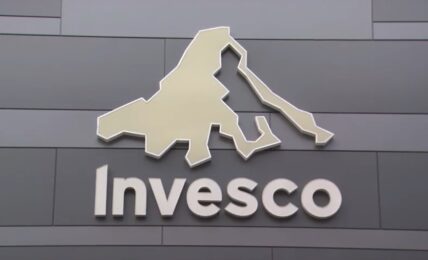Sustainability performance at companies across all geographic regions, sectors and sizes has improved over the past few years, according to a new report by sustainability ratings provider EcoVadis, with the greatest momentum identified in company value chains with significant gains in sustainable procurement scores.
The report, Business Sustainability Index, examines the results of the sustainability performance data from more than 62,000 companies assessed by EcoVadis across 159 countries. EcoVadis uses a 0-100 scoring scale, examining core themes including Environment, Labor & Human Rights, Ethics, and Sustainable Procurement, with size categories including small (25-99 employees), medium (100-999 employees) and large (1,000+ employees).
The global average score for all companies in the index reached 50.3 in 2022, increasing by 5.5 points from 2018 and 1.1 points from 2021, and marking the first time the average exceeded the 50-point mark. There was also a significant increase in companies reaching the top performance categories of “Advanced,” or a score above 65, with 12% of companies hitting this level, up 140% from 2018, while only 2% of companies scored below 25, or “insufficient,” down 50%.
In addition to an increase in overall scores, EcoVadis reported dramatic growth in the number of companies seeking assessments, with a 134% increase in assessments since 2018. According to EcoVadis, the increase in companies comes as “awareness around supply chain due diligence grows and more companies begin to assess and monitor their suppliers.”
The growing focus on supply chain sustainability appeared evident in the study’s results, with the Sustainable Procurement theme seeing the biggest gain in average score over the past year, rising by 1.7 points to 40.6. Small and medium-sized enterprises (SMEs) have the strongest scores in the procurement category, and have also seen the greatest long-term gains, with small companies improving by 2.2 points since 2018 and medium up 2.8 points, compared to large companies which have increased only by 1.3 points (with all of the increase over the past year). Nearly a quarter of large companies (24%) have Sustainable Procurement scores in the lowest “insufficient” rating level.
The outperformance in Sustainable Procurement over the past year, however, follows years of sluggish growth, leaving the category’s overall score well below the other themes, with the greatest long-term gains and highest overall score experienced in Labor & Human Rights, which saw an increase of 6.5 points since 2018 to reach 53.3, followed by Environment, up 5.5 points to 51.5, and Ethics, up 5.3 points to 47.9.
By company size, SMEs have seen the strongest gains and the highest scores overall. Small company performance increased by 6.9 points since 2018 to reach 50.7, and medium companies gained 5.6 points to reach 5.6, while large company scores grew 3.3 points to reach 48.3. Small companies saw particularly strong growth in the Labor and Human Rights theme, with scores up 8.8 points since 2018.
All industry groups saw sustainability performance gains in the index, with the strongest overall score in 2022 earned by “Finance, Legal & Consulting,” at 53.9, up 7.0 points since 2018, followed by “Construction,” at 52.0, up 6.0 points. Six out of nine industry categories earned scores above 50. “Transport” received the lowest score at 48.0, but also achieved a significant gain of 5.8 points over 2018.
By region European companies were the clear outperformers in the index, with an average 2022 score of 55.0, with all other regions scoring under 50, including North America at 47.9, followed by Latin America & the Caribbean at 45.9, Africa & the Middle East at 43.6, and Asia-Pacific at 42.4. Nordic countries were the strongest performers overall, with Norway companies averaging 59.4, Finland 59.2 and Sweden at 57.7.
Sylvain Guyoton, Chief Rating Officer at EcoVadis, said:
“Companies who work with their value chain on a ratings and improvement cycle can comply with due diligence regulations and manage risks by helping their suppliers move above the risk zone, as well as enable solid performers to reach more advanced levels that contribute to sustainability, net-zero and other ESG goals. It is particularly encouraging to see companies progress on the Sustainable Procurement theme as it is the most powerful lever available for driving positive environmental and social change.”
Click here to access the report.
The post Supply Chain Sustainability Gaining Momentum: EcoVadis first appeared on ESG Today.
The post Supply Chain Sustainability Gaining Momentum: EcoVadis appeared first on ESG Today.



